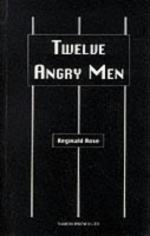
|
| Name: _________________________ | Period: ___________________ |
This quiz consists of 5 multiple choice and 5 short answer questions through Act I.
Multiple Choice Questions
1. Why is it clear from the dissenting juror's action that anyone could have had a weapon similar to the murder weapon?
(a) He purchased it for $2.00 from a shop near the defendant's house.
(b) He borrowed it from a policeman who said they confiscate them from schoolboys all the time.
(c) He found it on the street.
(d) He purchased it for $10 from a hunting shop nearby.
2. Which of the jurors comment that they all had difficult lives, so a difficult life should not explain the defendant's history of violence?
(a) 6,7,1 and 3.
(b) 3, 6, 9 and 12.
(c) 4, 7, 3 and 11.
(d) 3, 4, 11 and 12.
3. How does Juror Four challenge the defendant's alibi?
(a) The defendant cannot name the friend he was with.
(b) Noone saw the defendant.
(c) The defendant can give no details about what he claims to have been doing.
(d) The ticket collector at the game does not remember the defendent
4. According to the evidence, what weapon was used to kill the old man?
(a) A pen knife.
(b) A switch blade knife.
(c) A hatchet knife.
(d) A butcher knife.
5. Why do the jurors take a vote before discussing the evidence?
(a) The verdict is obvious.
(b) To get an early indication of where they stand on the verdict
(c) So they can leave quickly.
(d) The judge instructs them to do so.
Short Answer Questions
1. According to one witness, where in the apartment building did the murder occur?
2. Which words suggest that the defendant should not have to prove his innocence?
3. At what age was the defendant in reform school?
4. In the beginning of the deliberations, how do most of the jurors demonstrate a lack of seriousness about their role as jurors?
5. After eleven jurors vote "guilty" and one juror votes "not guilty", what process do the jurors decide on in order to resolve the matter?
|
This section contains 415 words (approx. 2 pages at 300 words per page) |

|




